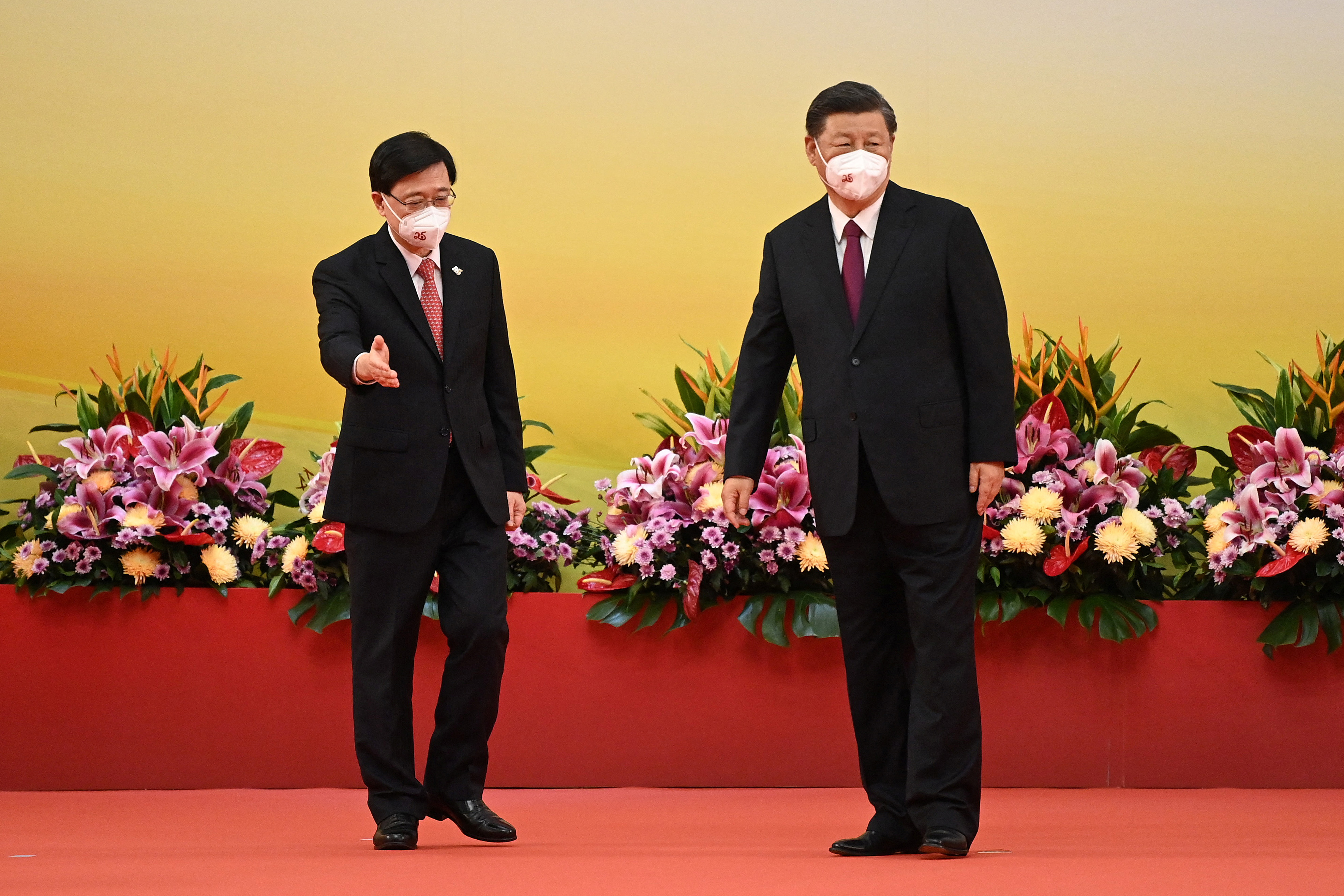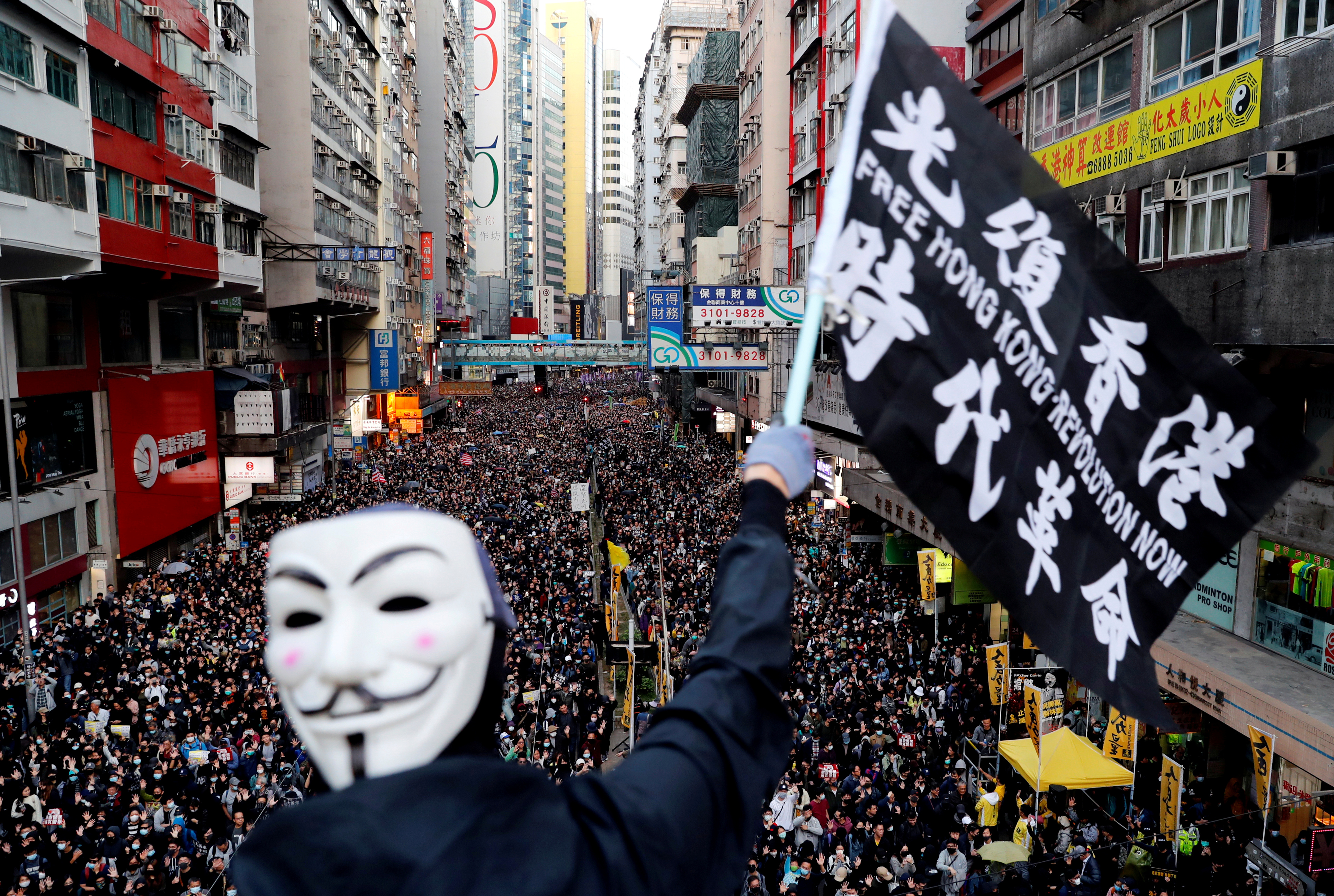
John Lee was sworn in on Friday as Hong Kong’s next leader, opening a new chapter for the former British colony as it marked 25 years since its return to Chinese rule.
The ceremony was overseen by Chinese President Xi Jinping, who travelled to Hong Kong on Thursday in his first trip outside mainland China since the pandemic began.
In his inaugural address, Lee promised to solve Hong Kong’s problems one at a time while promoting the city’s image overseas.
Lee, a former security chief, faces the difficult task of restoring the international financial centre’s reputation after some of the world’s longest-lasting COVID-19 restrictions and a draconian national security law pushed Hong Kongers and expatriates alike to leave in droves.
Lee, one of several top Hong Kong officials sanctioned by the United States over the Chinese territory’s declining autonomy and freedoms, said the legislation and new vetting rules in Hong Kong elections had allowed the city to emerge from “chaos to prosperity”.
Following Lee’s swearing in, Xi spoke about Hong Kong’s future as a city run by “patriots”.
“The regime must be in the hands of patriots,” Xi said, according to local media. “There’s no one in the world who would allow outsiders, betrayers or even traitors to get hold of political power.”
Xi said that while Beijing has “comprehensive jurisdiction” over Hong Kong, it has also protected the territory’s autotomy under the “one country, two systems” arrangement the city was promised until 2047.
Xi also addressed Hong Kong’s long-running problems with inequality, which some of its leaders blamed as the source of discontent behind mass pro-democracy protests in 2019.
Hong Kong’s wealth inequality is on par with southern Africa, according to the Gini coefficient, a popular metric of inequality.
“We must be pragmatic and promising, live up to the people, take the expectations of the whole society, especially ordinary citizens, as the greatest pursuit of governance, and take bolder and more effective measures to overcome difficulties,” Xi said, according to local media.
Xi also said the “city cannot afford to descend into chaos” again, referring to the at times violent demonstrations that gripped the city in 2019.
Strict social distancing measures were in place for the ceremony, which also marked the 25th anniversary of Hong Kong’s return to China, and attendees were required to quarantine in hotels earlier this week while also undergoing daily COVID tests.
Signs proclaiming a new era of “stability, prosperity, and opportunity” were erected around Hong Kong for the occasion, but celebrations were muted due to heavy security, poor weather and the perception among many residents that the city is losing its distinct way of life due to Beijing’s crackdown on dissent.
Under the terms of Hong Kong’s return to Chinese sovereignty on July 1, 1997, Beijing agreed to grant the city a high degree of autonomy and rights and freedoms not found on the Chinese mainland for at least 50 years after the handover.
But since the imposition of a draconian national security law in June 2020, authorities have practically wiped out the city’s once boisterous pro-democracy movement and forced the closure of dozens of civil society organisations and media outlets.

In years past, July 1 saw large demonstrations by Hong Kongers protesting against infringements on their political rights and autonomy by Beijing.
This year marks the first time no public activities will be held, following a similar ban on events to mark the 1989 Tiananmen Square massacre on June 4.
National security police arrested nine people over the past week and searched the houses of members of the League of Social Democrats, one of Hong Kong’s few remaining opposition groups.
The group was also told by police not to protest and its members have reportedly been followed.
The crackdown is expected to continue under Lee, one of several Hong Kong officials sanctioned by the United States for undermining the city’s autonomy and democratic rights.
As Hong Kong’s former security chief, Lee has been instrumental in the crackdown on opposition figures. His upcoming cabinet includes four other high-ranking officials under sanctions.
Lee is expected to introduce more legislation to curb dissent in Hong Kong, including a local national security law.
On Thursday, British Prime Minister Boris Johnson lamented the changes that have taken place in the city.
“We made a promise to the territory and its people and we intend to keep it, doing all we can to hold China to its commitments,” he said.
In the United States, Secretary of State Antony Blinken expressed concerns over the “erosion of autonomy” in the city, saying: “We stand in solidarity with people in Hong Kong and reinforce their calls for their promised freedoms to be reinstated.”







